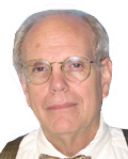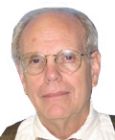
Career
Career-Change Reflections Mused in a Highbrow 1938 Memoir
Somerset Maugham left medicine for writing – snobbery, elitism, ego and fame.
Posted October 5, 2018
Changes in healthcare laws along with paperwork burdens and reimbursement obstacles may have some physicians putting away their stethoscopes – to take up a pen, figuratively but earnestly, if not “earningly.”
Some of the notable literary figures who studied medicine and then, to one extent or another, transfused their lives (and livelihoods) with literary pursuits: Anton Chekhov, John Keats, François Rabelais, Sir Arthur Conan Doyle, Oliver Wendell Holmes, Sr., William Carlos Williams, Robin Cook, Richard Selzer, Oliver Sacks, Khaled Hosseini, Abraham Verghese ... Early on, Zane Grey did some dentistry, and Michael Crichton followed his Harvard M.D. with post-doc biological studies. And, of course, there’s W. Somerset Maugham.
Maugham, a prolific novelist, short story writer, and playwright, “registered” as a medical student at St. Thomas’s (charity) Hospital in London in the Fall of 1892. In the Fall of 1897 he received his diplomas, but he had already been graduating to story-telling.
Med school served Somerset Maugham’s muse
Most notably there’s Philip Carey, the charity hospital med student in the semi-autobiographical novel Of Human Bondage.
Maugham also gave us William Ashenden (one-time med student, turned author, and narrator in Cakes and Ale), Dr. Coutras (in The Moon and Sixpence), Walter Fane (the bacteriologist and M.D. in The Painted Veil), and Dr. Audlin (the eminent London psychoanalyst in the short story Lord Mountdrago).
In all, though, there is little to inspire a medical student, or any pre-med undergrad cramming for the MCAT. Would W. Somerset Maugham’s memoir, The Summing Up, provide insights that I could pass along to physicians toying with the idea of practicing writing instead of medicine?
Career-change wisdom: Would Maugham’s memoir explain his exodus from medicine?
Why would someone who is so smart that they can survive Bio-Chem and Organic-Chem and Anatomy… to become a medical healer or medical researcher, be tempted to sidetrack such a career?
And why would someone so smart be tempted to chuck it in for the long and lonely labor of producing a novel that, statistically, would be relegated to bargain tables, remainder warehouses, and eventual pulping. Assuming the novel even got published commercially.
And yet, given the brilliant literary careers of writers who trained in medicine, I was curious about what insights might be acquired from one of the more prolific exemplars. At a bookshop, I happened to come upon a collection of W. Somerset Maugham’s writings. Most fittingly, his 1938 memoir The Summing Up was the concluding component.
I slogged through the memoir to prospect for passages in which Maugham reflected on his medical school experience. The following extractions may be of interest to those still contemplating a career in medicine or those imaging an exodus from the profession they worked so hard to attain:
“I do not know a better training for a writer than to spend some years in the medical profession.
“I suppose you can learn a good deal about human nature in a solicitor’s office; but there, on the whole, you have to deal with men in full control of themselves. They lie perhaps as much as they lie to a doctor, but they lie more consistently. It may be that for the solicitor it is not so necessary to know the truth....
“The doctor, especially the hospital doctor, sees it [the truth] bare.... Fear for the most part will shatter every defence; even vanity is unnerved by it.
“Most people have a furious itch to talk about themselves and are restrained only by the disinclination of others to listen. Reserve is an artificial quality that is developed in most of us, as the result of innumerable rebuffs. The doctor is discreet. It is his business to listen and no details are too intimate for his ears.”
Maugham’s career bypass: Remorse or false modesty?
As to his career path, Maugham credited medical school with teaching him something about human nature. He admitted, however, that those lessons might have been extended and deepened:
He wrote, “I sometimes wish that I had not had the good fortune to get my first book accepted immediately, for then I should have continued with medicine; I should have got the usual hospital appointments, gone as assistant to general practitioners in various parts of the country, and done locums; I should thus have acquired a mass of valuable experience. If my books had been refused one after the other, I should have come before the public at last with work less imperfect.”
Maugham acknowledged that his tour of duty as an obstetric clerk had provided him with the subject matter for his first novel (Liza of Lambeth) and “the clinical attitude required to write it.” In attending to births in the slums of Lambeth, he is said to have delivered sixty-three babies and would later claim to have qualified as a midwife.
Was Maugham ever destined to practice medicine?
Notably though, biographies written by Ted Morgan and Selina Hastings concluded that Maugham found the study of biology, physics, and chemistry “ineffably tedious.” Upon graduation, he turned down an obstetrical appointment.
Effete, Maugham celebrated the cultural and intellectual life away from the “irksomeness” of his few years at the charity hospital which was founded in the twelfth century for the purpose of treating the diseased poor, and where Florence Nightingale established her no-nonsense school of nursing.
Perhaps as a consequence of being judged “superficial” by some critics, Maugham later declared that he wished he had not abandoned medicine so quickly. He assumed that – “I could just as well have written at night and avoided the desperate financial struggle I had.”
Financial struggle seems to be finding its way into doctors’ offices and clinics, but writing fiction is probably not the cure for money worries.
When Maugham told the publisher of Liza of Lambeth that he was intent on abandoning the medical path to earn his living as a writer, the publisher is said to have intoned arm-around-the-shoulder advice about how hard it is to earn a living as a writer, especially as a writer of stories and plays. The advice seems to have gone something like this:
“Writing can be a very good staff, but it is a very unsteady crutch.”
“Disses” re art, literature, décor, and dinner parties
I gather that high society was the rod and staff that agreed with Maugham, even if it didn’t always comfort him. His memoir’s ramble of recollections and reflections reminded me of how put off I was by some of the themes, plots, and characters of some of Maugham’s novels. More to the point, The Summing Up is infested with snobberies, prejudices, put-downs, and his sexist (misogynistic) views of physician-hood; delivered with Joan Rivers’ cattiness.
There are detailed dismissals of people who are “common” – people who have no breeding and thus no taste, let alone exquisite taste and elegance. Drawing on his own social engagements, which fed his biases and aesthetic bigotries, Maugham’s memoir is replete with skewerings of attire, décor, place-settings, and vintages. With disdain and flair, he condemned what he judged to be abhorrent, odious, loathsome, detestable, abominable. In those elitist “distates” and "derisions," scholars probably find testaments to the times and insights as to Maugham’s inspirations. His appraisals of artists and other writers have surely been of interest.
In The Summing Up we get pronouncements regarding the theatre, religion, philosophy, metaphysics, and culture – delivered with rigorous certainty and torrents of dismissives, with an occasional dollop of false modesty. Nevertheless, his disapprovals are intellectual history.
Well, okay, but I was worn down by Maugham’s celebrations of who’s-who parties; his accounts of counts and countesses; his assessments of private dining clubs, London tailors, the best villas on the French Riviera, elegant furniture and furnishings, sensual paintings, and exquisite gowns – and by his put-downs. All on-the-scene social history, I suppose.
A summing up re Maugham’s Summing Up
Obviously, Maugham had the talent to make his career gamble a success. He probably could have been a good doctor. Instead, he became a most notable and acclaimed writer.
As to literary pursuits, Maugham warned that writing for public favor invariably means exposing oneself to “at least a small degree of obloquy.”
Was the obloquy he exposed himself to from literary critics a consequence of what he had dished out? Or did critics’ disapprovals motivate him to avenge himself and his work, by obloquy of his own?
We can leave that sorting out to Maugham’s biographers and other literary historians. But the “exposure to obloquy” Maugham warned of would seem to be applicable to any number of occupations, professions, and pursuits. There is always the chance that efforts and endeavors will be criticized, judged to be superficial or unexceptional.
Maugham took a sizable career risk, suffered and endured what for him was obloquy – and, for his pains, he reaped rewards.
For those contemplating a career bypass to writing – an elective career-ectomy and career transplant – Maugham’s critiques and cautions may be just what the doctor ordered. In a way, the one-time medical student's memoir can be read as counseling against committing career suicide.
References
“Maugham” by Ted Morgan ©1980 Simon & Schuster
“The Secret Lives of Somerset Maugham: A Biography” by Selina Hastings ©2010 Random House
“Somerset Maugham: A Life” by Jeffrey Meyers ©2004 Alfred A. Knopf



